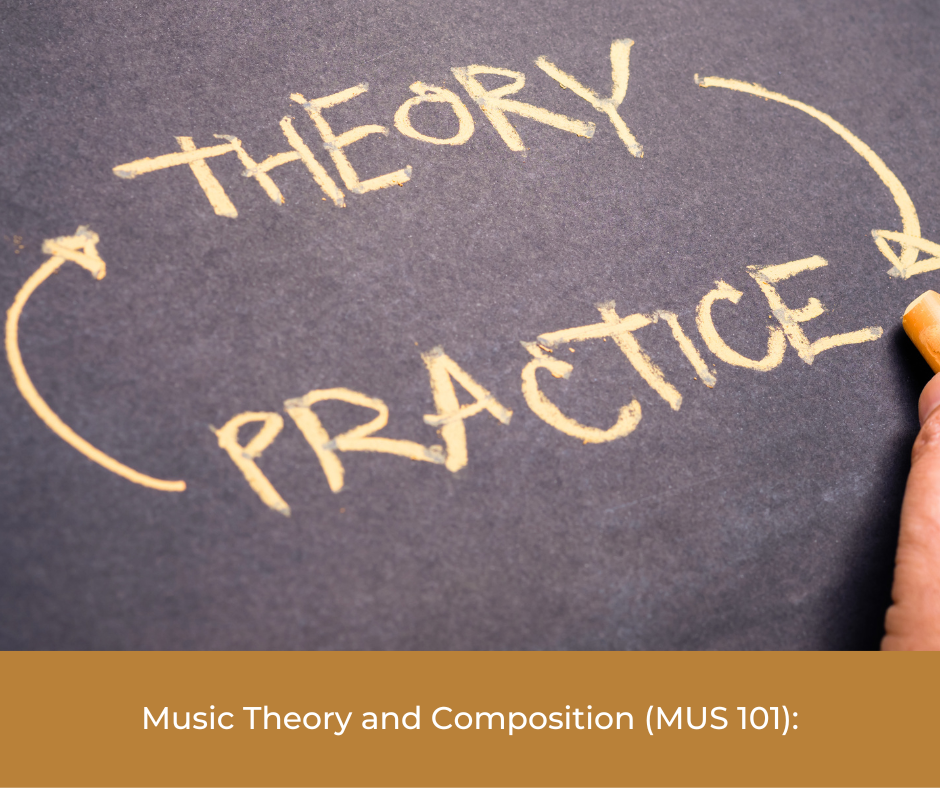Course Description – Music Theory and Composition (MUS 101):
This introductory course in music theory and composition provides students with a foundational understanding of the elements that constitute music. Through a comprehensive exploration of notation, scales, harmony, and composition techniques, students will gain the knowledge and skills needed to read and write music and begin their journey as composers. This course serves as the gateway to understanding the language of music, enabling students to communicate their musical ideas effectively.
Outline of Major Content Areas:
- Fundamentals of Music Notation:
- Introduction to musical symbols and notation.
- Reading and writing music in both treble and bass clefs.
- Scales and Key Signatures:
- Examination of major and minor scales.
- Understanding key signatures and their impact on musical compositions.
- Harmony and Chords:
- Exploration of basic harmony and chord progressions.
- Analysis of common chord structures in music.
- Melody and Counterpoint:
- Study of melodic development and composition.
- Introduction to counterpoint and contrapuntal techniques.
- Composition Techniques:
- Hands-on experience in composing short musical pieces.
- Application of learned concepts in creative composition.
Course Learning Outcomes:
Upon successful completion of MUS 101, students will be able to:
- Read and interpret musical notation, including both treble and bass clefs.
- Demonstrate proficiency in major and minor scales and key signatures.
- Analyze basic harmony and chord progressions in musical compositions.
- Create original melodies and simple musical compositions.
- Apply acquired composition techniques to express their musical ideas effectively.
Methods for Assessing Student Learning:
Assessment in this course will be conducted through a variety of methods, including:
- Written Assignments: Regular assignments assessing music theory comprehension.
- Listening Exercises: Evaluating students’ ability to recognize and analyze musical elements in compositions.
- In-Class Assessments: Quizzes and tests measuring understanding of key concepts.
- Composition Projects: Practical assignments requiring students to apply composition techniques.
- Participation: Active engagement in class discussions and music-making activities.
Through these assessments, students will have the opportunity to demonstrate their grasp of music theory and composition, both in theory and practice.
